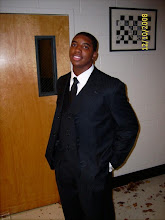1. Ambiguity Noun, plural -ties.
doubtfulness or uncertainty of meaning or intention: to speak with ambiguity; an ambiguity of manner.
2. Analogue noun 1.something having analogy to something else.
3. Anecdote noun a short account of a particular incident or event of an interesting or amusing nature, often biographical
4. Aphorism a terse saying embodying a general truth, or astute observation, as “Power tends to corrupt, and absolute power corrupts absolutely
5. Assonance Also called vowel rhyme. Prosody. rhyme in which the same vowel sounds are used with different consonants in the stressed syllables of the rhyming words, as in penitent and reticence.
6. Autobiography a history of a person's life written or told by that person.
7. Ballad any light, simple song, esp. one of sentimental or romantic character, having two or more stanzas all sung to the same melody.
8. Biography a written account of another person's life
9. Blank verse unrhymed verse, esp. the unrhymed iambic pentameter most frequently used in English dramatic, epic, and reflective verse.
10. carpe diem seize the day; enjoy the present, as opposed to placing all hope in the future.
11. Catastrophe sudden and widespread disaster: the catastrophe of war.
12. Comedy plays movie, etc., of light and humorous character with a happy or cheerful ending; a dramatic work in which the central motif is the triumph over adverse circumstance, resulting in a successful or happy conclusion.
13. Conceit excessively favorable opinion of one's own ability, importance, wit, etc.
14. Couplet pair of successive lines of verse, esp. a pair that rhyme and are of the same length.
15. Dialogue conversation between two or more persons
16 Dramatic monologue a poetic form in which a single character, addressing a silent auditor at a critical moment, reveals himself or herself and the dramatic situation.
17. Elegy 1.a mournful, melancholy, or plaintive poem, esp. a funeral song or a lament for the dead.
18. Epic mournful, melancholy, or plaintive poem, esp. a funeral song or a lament for the dead.
19. Epigraph inscription, esp. on a building, statue, or the like
20. Epithet any word or phrase applied to a person or thing to describe an actual or attributed quality
21. Euphemism the substitution of a mild, indirect, or vague expression for one thought to be offensive, harsh, or blunt
22. Exposition a large-scale public exhibition or show, as of art or manufactured products:
23. Fable short tale to teach a moral lesson, often with animals or inanimate objects as characters; apologue
24. Falling action the part of a literary plot that occurs after the climax has been reached and the conflict has been resolved
25. Farce light, humorous play in which the plot depends upon a skillfully exploited situation rather than upon the development of character.
26. Flashback device in the narrative of a motion picture, novel, etc., by which an event or scene taking place before the present time in the narrative is inserted into the chronological structure of the work.
27. Lamb a person who is easily cheated or outsmarted, esp. an inexperienced speculator.
28. Inference the act or process of inferring
29. Meter the fundamental unit of length in the metric system, equivalent to 39.37 U.S. inches, originally intended to be, and being very nearly, equal to one ten-millionth of the distance from the equator to the pole measured on a meridian
30. Metonymy figure of speech that consists of the use of the name of one object or concept for that of another to which it is related, or of which it is a part, as “scepter” for “sovereignty
31. myth traditional or legendary story, usually concerning some being or hero or event, with or without a determinable basis of fact or a natural explanation, esp. one that is concerned with deities or demigods and explains some practice, rite, or phenomenon of nature.
32. Novel fictitious prose narrative of considerable length and complexity, portraying characters and usually presenting a sequential organization of action and scenes.
33. Ode lyric poem typically of elaborate or irregular metrical form and expressive of exalted or enthusiastic emotion
34. Onomatopoeia formation of a word, as cuckoo or boom, by imitation of a sound made by or associated with its referent.
35. Parable short allegorical story designed to illustrate or teach some truth, religious principle, or moral lesson.
36. Parody humorous or satirical imitation of a serious piece of literature or writing:
37. Pastoral 1.having the simplicity, charm, serenity, or other characteristics generally attributed to rural areas
38. Pathetic fallacy endowment of nature, inanimate objects, etc., with human traits and feelings, as in the smiling
39. Pun humorous use of a word or phrase so as to emphasize or suggest its different meanings or applications, or the use of words that are alike or nearly alike in sound but different in meaning
40. Quatrain stanza or poem of four lines, usually with alternate rhymes.
41. Resolution formal expression of opinion or intention made, usually after voting, by a formal organization, a legislature, a club, or other group.
42. Rhyme identity in sound of some part, esp. the end, of words or lines of verse.
43. Rising action related series of incidents in a literary plot that build toward the point of greatest interest.
44. Romance novel or other prose narrative depicting heroic or marvelous deeds, pageantry, romantic exploits, etc., usually in a historical or imaginary setting
45. Saga medieval Icelandic or Norse prose narrative of achievements and events in the history of a personage, family,
46. Scansion the metrical analysis of verse. The usual marks for scansion are
47. Soliloquy an utterance or discourse by a person who is talking to himself or herself or is disregardful of or oblivious to any hearers present
48. Sonnet a poem, properly expressive of a single, complete thought, idea, or sentiment, of 14 lines, usually in iambic pentameter, with rhymes arranged according to one of certain definite schemes
49. stanza an arrangement of a certain number of lines, usually four or more, sometimes having a fixed length, meter, or rhyme scheme,
50. Stereotype process, now often replaced by more advanced methods, for making metal printing plates by taking a mold of composed
51. Suspense state or condition of mental uncertainty or excitement, as in awaiting a decision or outcome, usually accompanied by a degree of apprehension or anxiety
52. Tragedy dramatic composition, often in verse, dealing with a serious or somber theme, typically that of a great person destined through a flaw of character or conflict with some overpowering force
53. Understatement to state or represent less strongly or strikingly than the facts would bear out; set forth in restrained, moderate, or weak terms
Subscribe to:
Post Comments (Atom)





No comments:
Post a Comment